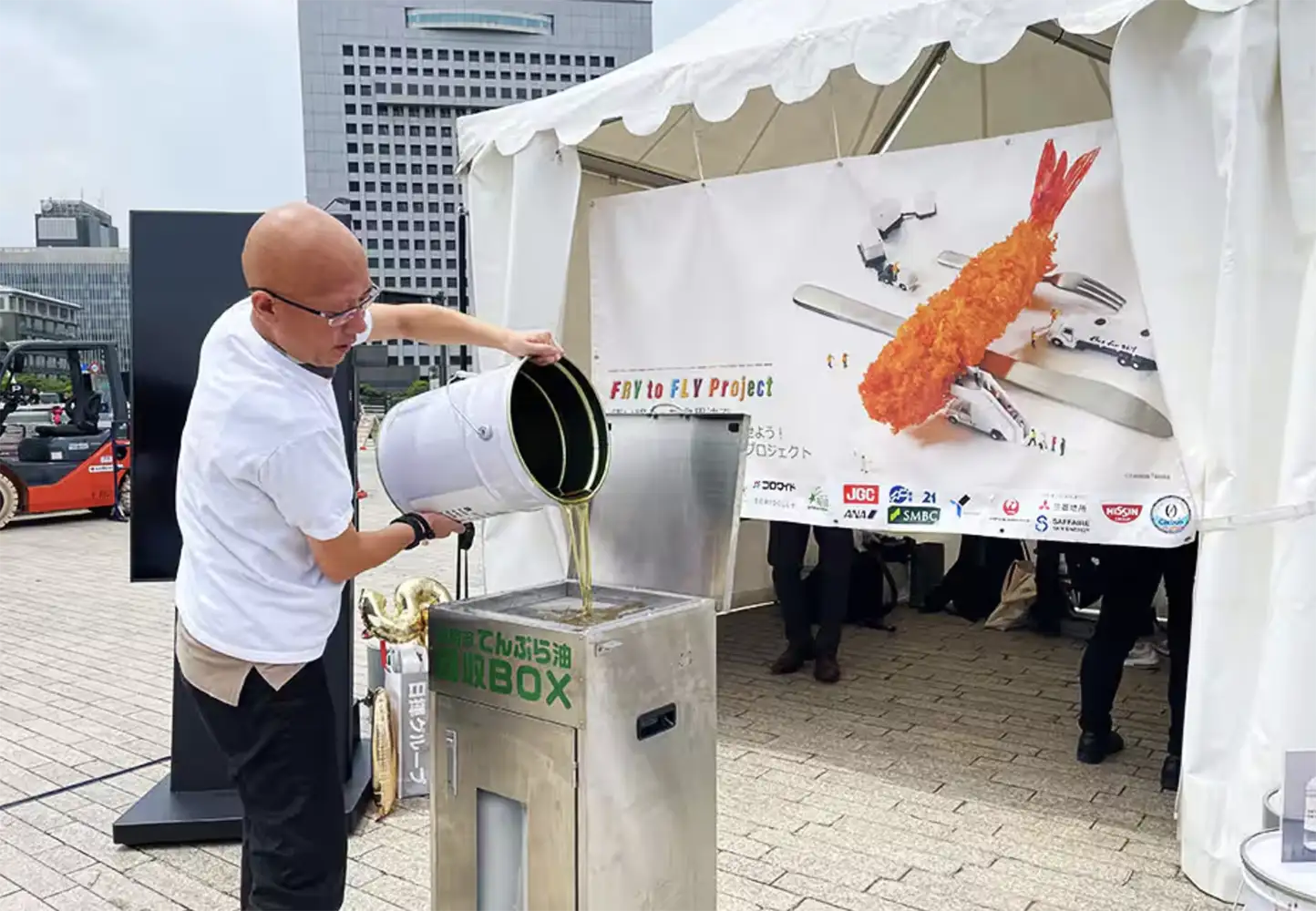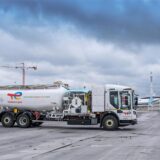
Iwatani joins Japan’s first domestic SAF production project
Iwatani Corporation has joined forces with Cosmo Oil, JGC Holdings, Revo International, and SAFFAIRE SKY ENERGY to support Japan’s first large-scale domestic production of sustainable aviation fuel (SAF) made entirely from used cooking oil (UCO).
Iwatani, a leading Japanese conglomerate specialising in energy and industrial gases, has signed a contract to identify sources of waste cooking oil across Japan. The aim is to help secure feedstock for the new SAF production facility being constructed within Cosmo Oil’s Sakai Refinery. The SAF plant, the only commercial-scale SAF plant in Japan, will commence production this month. It will be operated by SAFFAIRE SKY ENERGY.
As part of the initiative, Iwatani will leverage its extensive LPG customer base and industrial network—serving more than 3.3 million households—to identify and collect waste oil. Revo International, a Japanese company specialising in waste oil recycling and environmental solutions, will be responsible for the collection and transportation of the oil to the SAF plant.
The project also includes the involvement of Cosmo Oil Co., Ltd., one of Japan’s largest petroleum companies with strong expertise in refining and fuel distribution, and JGC Holdings Corporation, a global engineering firm with significant experience in energy infrastructure and plant construction.
Together, the six companies aim to establish a fully domestic SAF supply chain—from feedstock procurement to fuel production and airline delivery—supporting Japan’s national target of achieving 10% SAF usage by 2030.
This initiative is supported by the Japanese government’s New Energy and Industrial Technology Development Organization (NEDO).
“We aim to expand the SAF supply chain and strengthen domestic production,” the companies said in a joint statement. They also confirmed their participation in the “Fry to Fly” Project, a national campaign promoting SAF derived from used cooking oil.
The SAF produced at the Sakai plant will comply with international sustainability standards under the ISCC CORSIA certification. Once fully operational, the facility will produce approximately 30,000 kilolitres of SAF annually, cutting lifecycle CO₂ emissions by up to 80% compared to conventional jet fuel.
Currently, around 30% of Japan’s used cooking oil is exported, while high-priced SAF is imported. This project aims to boost Japan’s SAF self-sufficiency and support a circular economy by building the nation’s first domestic SAF supply chain.














